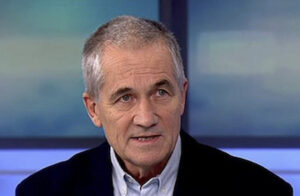WITHDRAWAL RESOURCES
Welcome to MIA’s Drug Withdrawal Resource page. You can find here a directory of providers who help people taper from psychiatric medications, and information about withdrawal guides, educational courses, research studies, and personal withdrawal studies. Please write Susannah Senerchia ([email protected]) with any suggestions for other resources and information that could be added to this section of our website.
Disclaimer: Mad in America is not providing medical advice with this resource section, or making any recommendations regarding withdrawal from psychiatric medications. The purpose of this page is to provide resources and information for those who may be considering this possibility.
Provider Directory
Visit the Mad in America provider directory to find practitioners who can help individuals withdraw from psychiatric medications.
EDUCATIONAL COURSES

Psychiatric Drug Withdrawal 1: This MIA Continuing Education course is composed of seven seminars, with presentations by Jocelyn Pedersen, Dina Tyler, Emily Cutler, Will Hall, Sandra Steingard, Kelly Brogan, and Will Hall.
 Psychiatric Drug Withdrawal II: The Psychiatrist’s Perspective on Challenges, Opportunities and Shared Decision-Making. This MIA Continuing Education course is composed of eight seminars, witpresentations by Joanna Moncrieff, Sandy Steingard, David Healy, Johanna Ryan, Sami Timimi, Swapnil Gupta, Pesach Lichtenberg, and Roger Mulder.
Psychiatric Drug Withdrawal II: The Psychiatrist’s Perspective on Challenges, Opportunities and Shared Decision-Making. This MIA Continuing Education course is composed of eight seminars, witpresentations by Joanna Moncrieff, Sandy Steingard, David Healy, Johanna Ryan, Sami Timimi, Swapnil Gupta, Pesach Lichtenberg, and Roger Mulder.
 In this MIA Continuing Education webinar, Olga Runciman, a co-founder of the Danish Hearing Voices Network, tells of her work with helping people taper from antipsychotics and other psychiatric medications.
In this MIA Continuing Education webinar, Olga Runciman, a co-founder of the Danish Hearing Voices Network, tells of her work with helping people taper from antipsychotics and other psychiatric medications.
 A course in Denmark, led by Peter Gøtzsche, on safe withdrawal from psychotropics. (Subtitles in English.)
A course in Denmark, led by Peter Gøtzsche, on safe withdrawal from psychotropics. (Subtitles in English.)





























